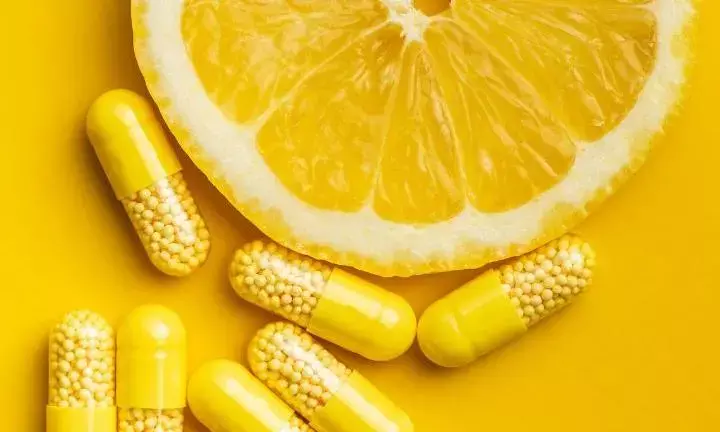- Home
- Medical news & Guidelines
- Anesthesiology
- Cardiology and CTVS
- Critical Care
- Dentistry
- Dermatology
- Diabetes and Endocrinology
- ENT
- Gastroenterology
- Medicine
- Nephrology
- Neurology
- Obstretics-Gynaecology
- Oncology
- Ophthalmology
- Orthopaedics
- Pediatrics-Neonatology
- Psychiatry
- Pulmonology
- Radiology
- Surgery
- Urology
- Laboratory Medicine
- Diet
- Nursing
- Paramedical
- Physiotherapy
- Health news
- Fact Check
- Bone Health Fact Check
- Brain Health Fact Check
- Cancer Related Fact Check
- Child Care Fact Check
- Dental and oral health fact check
- Diabetes and metabolic health fact check
- Diet and Nutrition Fact Check
- Eye and ENT Care Fact Check
- Fitness fact check
- Gut health fact check
- Heart health fact check
- Kidney health fact check
- Medical education fact check
- Men's health fact check
- Respiratory fact check
- Skin and hair care fact check
- Vaccine and Immunization fact check
- Women's health fact check
- AYUSH
- State News
- Andaman and Nicobar Islands
- Andhra Pradesh
- Arunachal Pradesh
- Assam
- Bihar
- Chandigarh
- Chattisgarh
- Dadra and Nagar Haveli
- Daman and Diu
- Delhi
- Goa
- Gujarat
- Haryana
- Himachal Pradesh
- Jammu & Kashmir
- Jharkhand
- Karnataka
- Kerala
- Ladakh
- Lakshadweep
- Madhya Pradesh
- Maharashtra
- Manipur
- Meghalaya
- Mizoram
- Nagaland
- Odisha
- Puducherry
- Punjab
- Rajasthan
- Sikkim
- Tamil Nadu
- Telangana
- Tripura
- Uttar Pradesh
- Uttrakhand
- West Bengal
- Medical Education
- Industry
Vitamin C supplementation linked to modestly reduced incidence of gout

A new study conducted by Stephen Juraschek and team found that in middle-aged male physicians, vitamin C slightly decreased the likelihood of new gout diagnosis. The findings of this study were published in The American Journal of Clinical Nutrition.
A 500 mg/d vitamin C supplement may lower blood urate, according to short-term randomized trials, however vitamin E appears to have an opposite relationship with the risk of developing gout, according to observational research. In order to determine the impact of supplementary vitamin C (prespecified main exposure) and vitamin E (prespecified secondary exposure) on gout diagnosis, this study was carried out.
Data from the Physicians' Health Study II, a double-blind, factorial study of randomized vitamin C (500 mg/d) and vitamin E doses, were analyzed post hoc (400 IU every other day). The main result was new gout diagnosis, which were self-reported at baseline and during the whole follow-up of about 10 years.
The key findings of this study were:
1. In our research, 14,641 randomly assigned male physicians had mean ages of 64 ± 9 years, 1% of them were Black, and 6.5% of them had gout at the time of randomization.
2. Those who received vitamin C saw a lower incidence rate of new gout diagnoses during follow-up—8.0 per 1000 person-years versus 9.1 per 1000 person-years among those who received placebo.
3. The vitamin C assignment resulted in a 12% decrease in new gout diagnosis.
4. The BMI of individuals who experienced these effects was below 25 kg/m2. A new diagnosis of gout was not linked to vitamin E.
In conclusion, this study clearly states the efficiency of vitamin C in gout. More study is needed to investigate the effects of increased vitamin C dosages on serum urate and gout flares in individuals with established gout.
Reference:
Juraschek, S. P., Gaziano, J. M., Glynn, R. J., Gomelskaya, N., Bubes, V. Y., Buring, J. E., Shmerling, R. H., & Sesso, H. D. (2022). Effects of vitamin C supplementation on gout risk: results from the Physicians' Health Study II trial. In The American Journal of Clinical Nutrition (Vol. 116, Issue 3, pp. 812–819). Oxford University Press (OUP). https://doi.org/10.1093/ajcn/nqac140
Dr Kartikeya Kohli is an Internal Medicine Consultant at Sitaram Bhartia Hospital in Delhi with super speciality training in Nephrology. He has worked with various eminent hospitals like Indraprastha Apollo Hospital, Sir Gangaram Hospital. He holds an MBBS from Kasturba Medical College Manipal, DNB Internal Medicine, Post Graduate Diploma in Clinical Research and Business Development, Fellow DNB Nephrology, MRCP and ECFMG Certification. He has been closely associated with India Medical Association South Delhi Branch and Delhi Medical Association and has been organising continuing medical education programs on their behalf from time to time. Further he has been contributing medical articles for their newsletters as well. He is also associated with electronic media and TV for conduction and presentation of health programs. He has been associated with Medical Dialogues for last 3 years and contributing articles on regular basis.
Dr Kamal Kant Kohli-MBBS, DTCD- a chest specialist with more than 30 years of practice and a flair for writing clinical articles, Dr Kamal Kant Kohli joined Medical Dialogues as a Chief Editor of Medical News. Besides writing articles, as an editor, he proofreads and verifies all the medical content published on Medical Dialogues including those coming from journals, studies,medical conferences,guidelines etc. Email: drkohli@medicaldialogues.in. Contact no. 011-43720751


